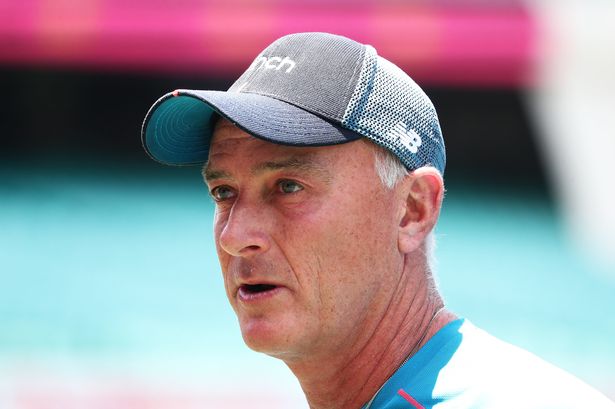Health
Former England Cricketer Graham Thorpe’s Mental Health Struggles Uncovered

An inquest into the death of former England cricketer Graham Thorpe revealed troubling details regarding his mental health struggles leading up to his tragic passing. Thorpe died after being struck by a train at a railway station in Surrey on the morning of August 4, 2024. His widow, Amanda Thorpe, stated in court that he had requested her assistance in ending his life in the weeks prior to his death.
During the ongoing inquest at the Surrey Coroner’s Court, evidence was presented indicating that Thorpe had been battling severe depression, particularly following the loss of his position as a batting coach in 2022. Witnesses reported that he expressed feelings of hopelessness, telling a healthcare professional he “didn’t see the point of being here.” This statement was made shortly before his death, highlighting the depth of his despair.
Dr. Amirthalingam Baheerathan, a consultant psychiatrist, testified regarding Thorpe’s mental health history. He noted that Thorpe had missed several appointments with the community mental health team and that his mental state had fluctuated significantly. At times, he was described as severely depressed, while at other moments he seemed more stable. Dr. Baheerathan indicated that, despite Thorpe’s concerning comments, he did not perceive him to be at immediate risk of self-harm during their last interaction.
The inquest revealed that Thorpe had expressed active suicidal thoughts during a meeting in April 2023. Following that discussion, measures were taken to ensure he was accompanied to subsequent appointments. Yet, despite these interventions, Thorpe’s mental health continued to decline.
On June 28, 2024, after missing an appointment, care coordinator Katie Johnson engaged with Thorpe, who admitted he had “not been out for a while.” Despite his troubling sentiments, he had no immediate plans to act on his thoughts of self-harm, according to Dr. Baheerathan’s assessment.
A significant factor in Thorpe’s deteriorating mental health was linked to an incident while on tour in Australia. A video shared among friends was leaked, leading to adverse publicity that left him feeling “distraught,” as described by Amanda Thorpe. This incident, occurring after a disappointing Ashes series in which England lost 4-0, was noted as a pivotal moment that contributed to his mental health decline.
The inquest also highlighted the impact of Thorpe’s termination from his role with the England and Wales Cricket Board, which his wife characterized as a “real shock” and a critical turning point for his mental well-being. Thorpe had enjoyed a distinguished career, amassing 16 Test hundreds and representing England 182 times across all formats from 1993 to 2005 before transitioning into coaching roles.
The details emerging from the inquest paint a picture of a talented athlete whose struggles with mental health were exacerbated by significant personal and professional setbacks. As the investigation continues, it strives to shed light on the complexities of mental health challenges faced by public figures, particularly in high-pressure environments like professional sports.
-

 World2 months ago
World2 months agoCoronation Street’s Shocking Murder Twist Reveals Family Secrets
-

 Entertainment2 months ago
Entertainment2 months agoAndrew Pierce Confirms Departure from ITV’s Good Morning Britain
-

 Health5 months ago
Health5 months agoKatie Price Faces New Health Concerns After Cancer Symptoms Resurface
-

 Health2 weeks ago
Health2 weeks agoSue Radford Reveals Weight Loss Journey, Shedding 12–13 kg
-

 Entertainment6 months ago
Entertainment6 months agoKate Garraway Sells £2 Million Home Amid Financial Struggles
-

 Entertainment5 months ago
Entertainment5 months agoAnn Ming Reflects on ITV’s ‘I Fought the Law’ Drama
-

 World3 months ago
World3 months agoBailey Announces Heartbreaking Split from Rebecca After Reunion
-

 Entertainment2 months ago
Entertainment2 months agoDavid Jason and Nicholas Lyndhurst Eye Reunion for Only Fools Anniversary
-

 Entertainment3 months ago
Entertainment3 months agoCoronation Street Fans React as Todd Faces Heartbreaking Choice
-

 World3 months ago
World3 months agoEastEnders’ Nicola Mitchell Faces Unexpected Pregnancy Crisis
-

 Entertainment2 months ago
Entertainment2 months agoBradley Walsh Sparks Strictly Come Dancing Hosting Speculation
-

 Entertainment2 months ago
Entertainment2 months agoTwo Stars Evicted from I’m A Celebrity Just Days Before Finale





















